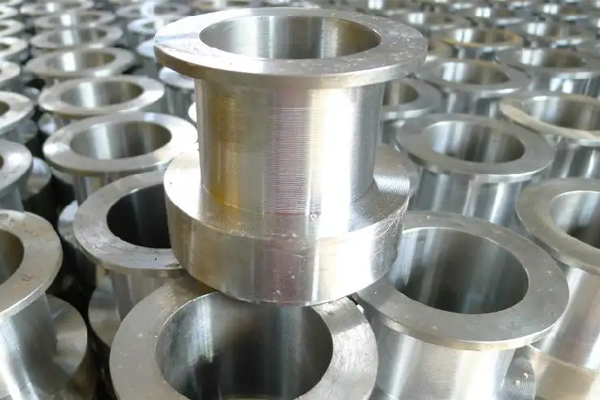The main task of forgings quality inspection and quality analysis is to identify the quality of forgings, analyze the causes of forgings defects and preventive measures, analyze the causes of forgings defects, put forward effective prevention and improvement measures, which is an important way to improve and ensure the quality of forgings. From the forging defects can be seen that the factors affecting the forging quality are many, in addition to the quality of raw materials has an important impact, but also closely related to the forging process and heat treatment process. Therefore, the analysis and research of forging quality problems, is a careful and complex work.
The general process of quality analysis of forgings is:
1. Investigate the original situation, including the investigation of raw materials and forging process. The former should know the quality of raw materials, as well as the smelting and processing technology of raw materials. The latter should investigate whether the forging process specification is reasonable and the actual implementation of forging production.
2. Make clear the quality problem, mainly to make clear the cause, find out the defects of forging parts and the macro characteristics of defects, preliminary judgment is caused by raw materials, or caused by forging process.
3. Experimental research and analysis, which is the main stage to determine the cause of the defects of forgings, that is, the defective forgings were sampled and analyzed to determine the characteristics of the macroscopic and microscopic structures; If necessary, comparative test of process parameters is also needed to study and analyze the causes of forging defects.
4. Proposed solutions, based on the clear causes of forging defects, combined with the production practice, proposed preventive measures and solutions.
The test methods of forgings quality analysis include: low-power microstructure test, metallographic microstructure test and metal deformation and flow analysis test. As mentioned above, low power test can expose macro defects of forgings; Metallographic microstructure test is helpful to study and analyze the microstructure characteristics and formation mechanism of defects. The metal deformation flow analysis test is of special significance to the analysis of crack, folding, coarse-grain formation, streamline distribution and so on. In forgings quality analysis, is often combined with the above three. With the rapid development of modern technology, some advanced test techniques such as non-destructive testing method, electron microscope, etc., are also used to analyze the quality of forging parts, making the quality analysis method towards the direction of accurate, rapid and efficient development.
Post time: Apr-24-2022

